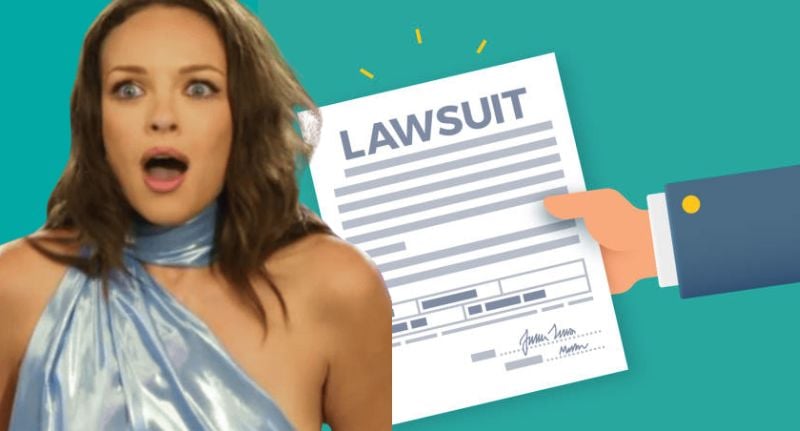Media personality and former Bachelor contestant Abbie Chatfield is being sued for defamation by her former close friend, Heath Kelley, over an Instagram story that accused him of supporting “genocide” and the “slaughter of children” in Gaza.
According to court documents filed in late September, Kelley alleges that Chatfield published private messages between them to her 550,000 Instagram followers on May 7, days after the federal election.
The case has raised questions (and heart rates) in media and influencer circles, with many now asking: how private are your private messages, really?
As the lawsuit between Chatfield and Kelley unfolds, legal expert and partner at Dowson Turco Lawyers, Nicholas Stewart, told Mediaweek it’s a cautionary tale for journalists, public figures, and anyone who uses social media to share heated exchanges.

Chatfield and Kelley in happier times.
Public profile, public post
Chatfield’s Instagram is public, but would she have been safer if it weren’t? Not necessarily, said Stewart.
“A private profile would only limit what we call the grapevine effect, by reducing the ability for the non-following public (and journalists) to view the posts,” he explained.
“But a private profile on Instagram can obviously still have many thousands of followers, and defamation law only requires publication to at least one other person.”
In other words, it’s not about follower count – it’s about publication.
“A plaintiff in defamation proceedings in NSW would also have to show serious harm,” Stewart added, noting that courts look at the size of the audience, the public profile of the person posting, and any reputational or emotional damage caused by the publication.
Can you post someone’s DMs?
That depends on whether the message was sent in confidence.
“Arguably DMs are ordinarily intended to be confidential, but in the times we are in I am not sure that rule always applies,” Stewart said.
“For example, if you messaged your celebrity crush and they shared your DM on their stories or in a reel, would you expect them to have kept the DM secret?”
Still, it’s a legal grey area.
“A breach of confidence or the tort of privacy intrusion might be available to someone who has communicated sensitive information to another and expected that person to keep it confidential,” Stewart explained.
But for a privacy claim to hold up Stewart stipulated that “there has to have been an invasion of privacy by either intrusion or the misuse of information that relates to the plaintiff, the invasion of privacy must be intentional or reckless, the invasion of privacy must be serious; and the public interest in the plaintiff’s privacy would need to outweigh any countervailing public interest (for example, freedom of expression or freedom of the media).”

Legal expert Nicholas Stewart, who is a partner at Dowson Turco Lawyers
When identification is indirect
One question floating around newsrooms: if Chatfield hadn’t named her friend, would she still be in trouble?
“Possibly,” Stewart cautioned. “By not identifying her friend she might have been able to avoid a lawsuit in the first place, although identification in the context of defamation does not need to be explicit.”
Even without a name, a person can still be identified by “other facts about the friend, or what he said or stood for.”
That’s enough for a defamation claim to proceed, and enough to remind public figures that anonymity on social media is rarely watertight.
The privacy pendulum swings
For decades, it was public figures who feared their private lives going public. Now, that dynamic is shifting.
Stewart warned anyone who happens to dip their toe into the media pool (even recreationally) to think carefully about “how we communicate with people we know (and people we don’t know). As lawyers, we are taught early on, don’t put anything in writing you don’t want made public.”
The silver lining? “The good news is there is now a tort of privacy, and there may be some situations where people will be able to sue for serious breaches of their privacy.”
Think before you post (or DM)
The biggest takeaway for anyone in the public eye: caution. This is particularly the case in NSW Stewart said, given we are the “defamation capital of the world”.
For journalists, influencers, and even casual users, the Chatfield case is a timely reminder that “screenshots last forever,” and that what starts as a story to your followers could end as one for the courts.
And, if Taylor Swift has taught us anything, always keep receipts.
